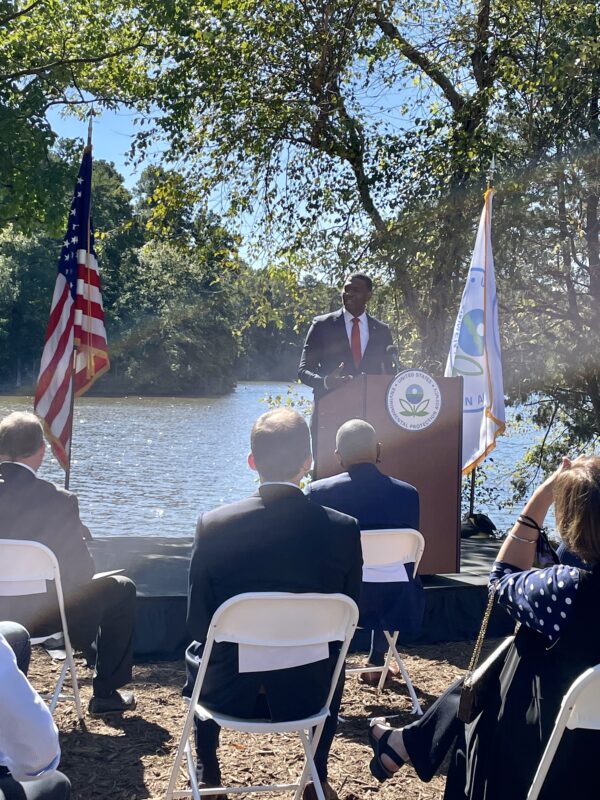
U.S. Environmental Protection Agency Administrator Michael Regan visited NC State last week to announce the EPA’s new “PFAS Strategic Roadmap” to address per- and polyfluoroalkyl substances (PFAS) contamination. A group of over 9,000 unique human-made chemicals, PFAS are extremely persistent in the environment and associated with multiple health effects like cancer, immunotoxicity, and liver damage.
The 26-page PFAS Roadmap includes a 2021-2024 timeline of action items focused around three central directives: Research (investing in work to better understand PFAS), Restrict (limiting more PFAS from entering the environment), and Remediate (cleaning up of PFAS already present in the environment).
North Carolina native and previous Secretary of the North Carolina Department of Environmental Quality (DEQ), Michael Regan stated that battling PFAS contamination was one of the toughest issues he faced during his tenure as the head of the NC DEQ. Now, as EPA Administrator, Regan plans to hold polluters accountable and enact safe drinking water standards on a national scale.
North Carolina is home to one of the first-known major PFAS contamination sites. In late 2016, NC State Superfund Center’s Detlef Knappe (Center Deputy Director and Project 4 Remediation Co-Principal Investigator) and researchers at the U.S. EPA discovered concerning levels of PFAS in the Cape Fear River, NC, including a newly described compound known as GenX.
Given North Carolina’s experience with PFAS contamination and rich history of environmental health research and advocacy, NC State researchers and North Carolina environmental advocates have been instrumental in bringing national attention to PFAS contamination. Our Center is dedicated to understanding PFAS contamination and health outcomes on multiple fronts and looks forward to seeing federal action be taken on this critical issue.
